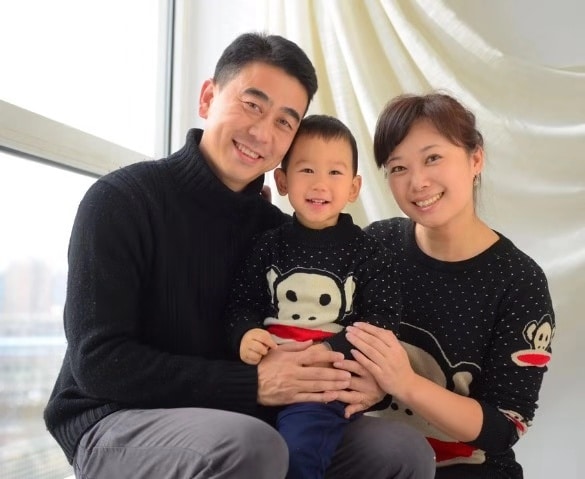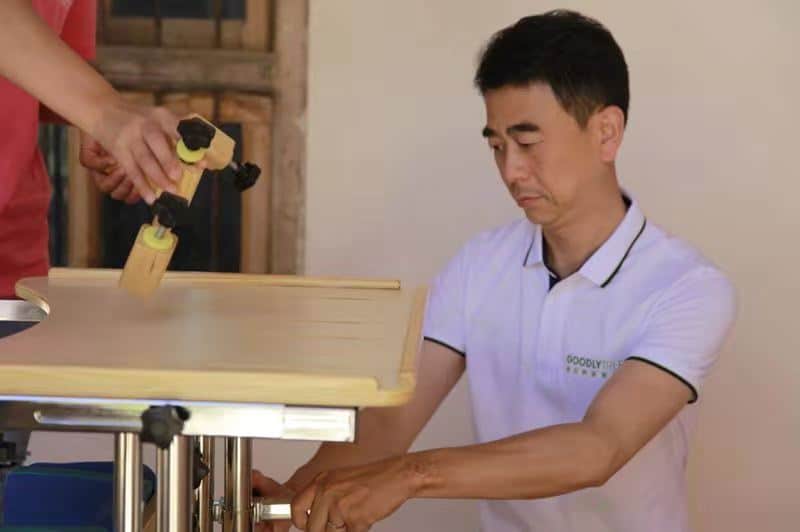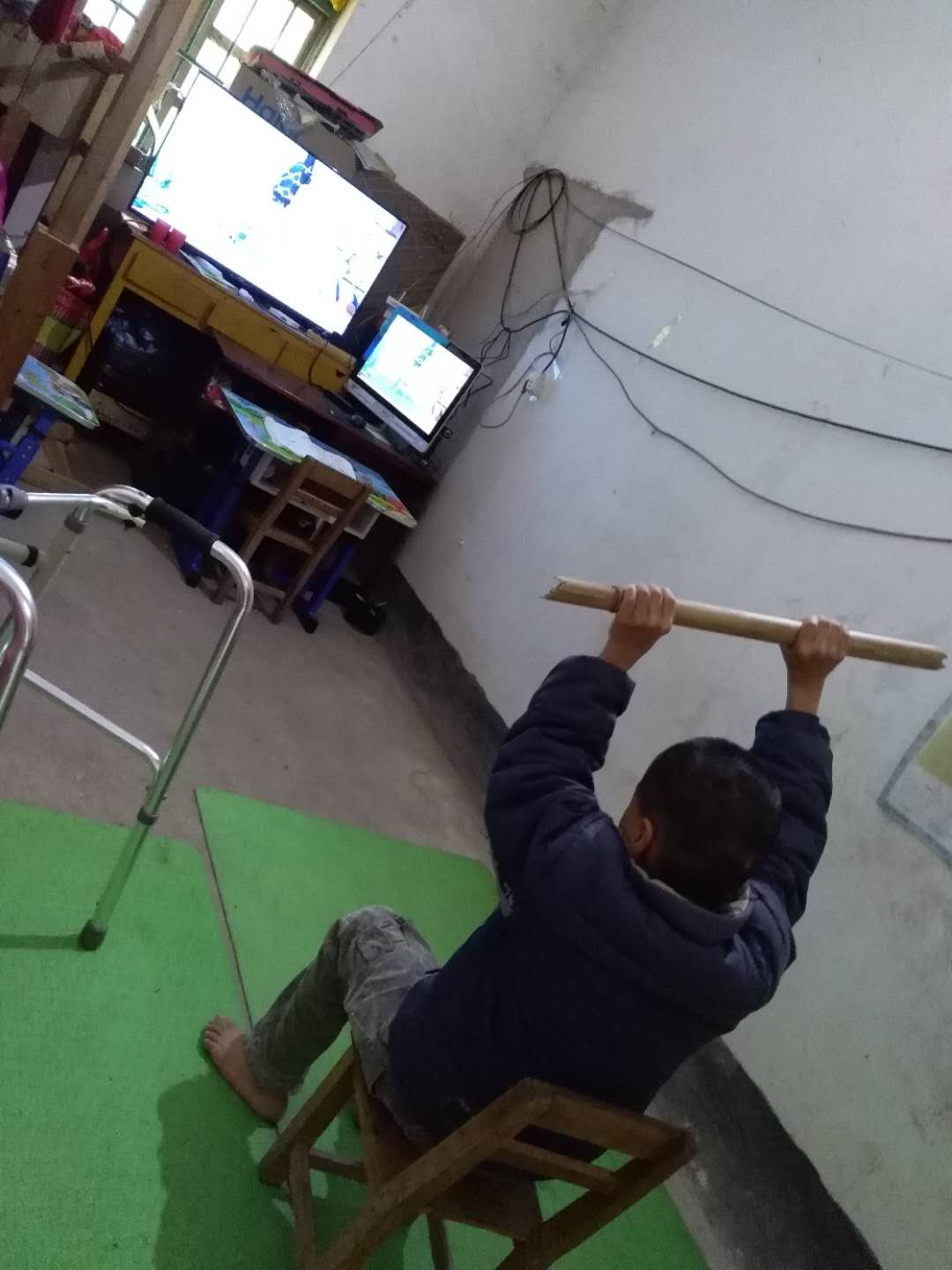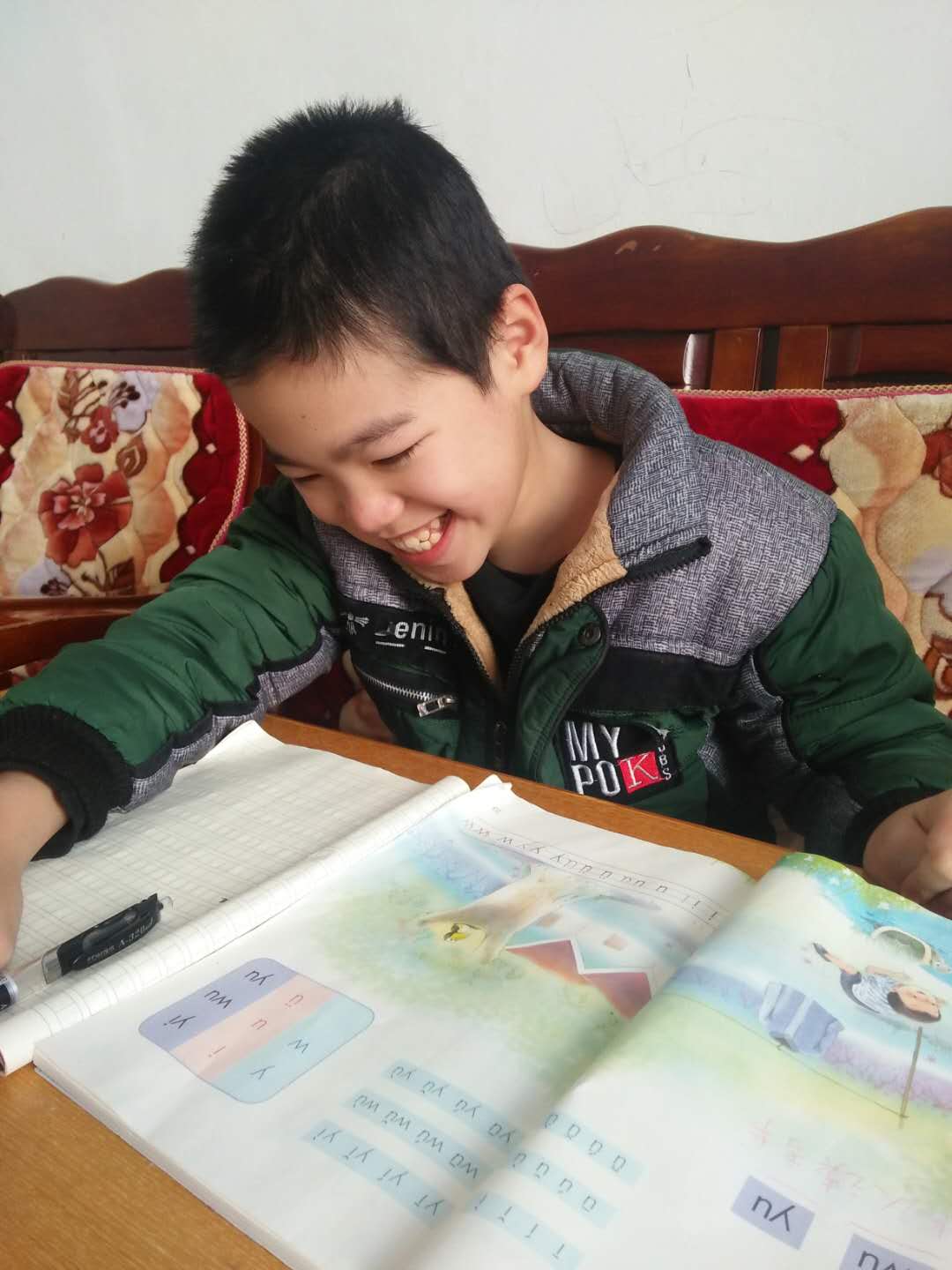Editor’s Note
This article was written by CDB’s Yin Qian, based on a visit to Goodlytrees’ Beijing office and on a chat with Zhang Cheng and with program officer Wang Shuangbin.
Zhang Cheng, a Beijing lawyer, came into contact with the issue of cerebral palsy for the first time when he was taken to visit a rehabilitation center sponsored by one of his clients some years ago. The random visit inspired Zhang to start volunteering to help children with cerebral palsy in 2014. His further contact with the forefront of cerebral palsy rehabilitation unveiled to Zhang a world filled with difficulties, and the struggles that confronted the families of the sufferers and the rehabilitation centers.
Through years of volunteer work, Zhang realized that rehabilitation per se could hardly respond to the full needs of children with cerebral palsy. In China, most non-governmental cerebral palsy rehabilitation centers are based essentially on the founders’ enthusiasm, which means they are short of professional management and guidance, let alone a sustainable development plan; while the government-backed comprehensive rehabilitation centers can only provide limited resources to help children with cerebral palsy.

Zhang Cheng (left)
Studies suggest that the ideal medical intervention for kids with cerebral palsy should start before age 3, and that the age from 3 to 12 is the golden period for rehabilitation. When explaining the status quo of cerebral palsy rehabilitation in China, Zhang emphasizes that “in China, the number of people with cerebral palsy is estimated to be around 7 million and the number of children with cerebral palsy is about 2 million, however, less than 10% of the children with cerebral palsy can access rehabilitation centers, and less than 30% can access any resources related with rehabilitation.”
Realizing the severity of the situation, Zhang set up the Goodlytrees cerebral palsy children rehabilitation center (Goodlytrees) and managed to register the organization as an NGO under the Beijing Civil Affairs Bureau in 2017. Goodlytrees is designated to be a professional service organization echoing multiple social needs and focusing on rehabilitation and holistic development for children with cerebral palsy, which includes physical functions, cultural education, emotional care, and personality shaping.

Zhangcheng helping to assemble a desk for children with cerebral palsy
By cooperating with well-known rehabilitation institutions and professionals in China and abroad, Goodlytree has developed three operational modules:
- Building a family-support system
Aims to organize offline activities for children with cerebral palsy and their families, host lectures and offer psychological consulting services.
- Assisting the development of cerebral palsy rehabilitation institutions
Helps the capacity building of these institutions, for instance by providing project plans, project evaluation and supporting funds.
- Concentrating on the education of cerebral palsy rehabilitation professionals
Provides professional training, the compilation of teaching materials, and industry analysis.
Class at Home
Goodlytrees’ most representative project is its distance education experiment, which is expected to lower the rehabilitation costs for the family and promote social inclusiveness for children with cerebral palsy.
“Figures show that six in a thousand children in remote areas suffer from cerebral palsy, which is twice the national ratio. The main reason might be linked to the poor sanitary conditions during pregnancy”, explains Goodlytrees’ program director Wang Shuangbin. He continues by saying that “due to poverty and traditional customs, a considerable proportion of children with cerebral palsy are not able to access rehabilitation training.”
The project is named Class at Home, and it provides distance education for children with cerebral palsy in remote areas of the Guangxi Zhuang Autonomous Region. It is a pro-active experiment to address the problems described above. Goodlytrees invited cerebral palsy rehabilitation institutions to operate the project together. “Through in-depth involvement in the whole project operations, those institutions could gain experience and knowledge about how to run a sustainable project, even an organization. More children with cerebral palsy can benefit if there are more professional rehabilitation centers”. Zhang stresses that the role of Goodlytrees in this is to help the grassroots rehabilitation institutions to grow.

A boy with cerebral palsy doing online rehabilitative training
One local rehabilitation center shouldered the responsibility of recruitment, and in the end 21 families were chosen to participate in the project for free among hundreds of applicants. The project offers online rehabilitation training and education for children with cerebral palsy, and every 10 families are equipped with one professional trainer. The online approach is anticipated to provide solutions to resource shortages.
Goodlytrees has also extended this project to the Xinjiang area, and attempted to address the same problem in a cross-cultural and cross-language scenario. According to the statistics of the United Nations World Health Organization, the prevalence of cerebral palsy in children aged 0-6 in Xinjiang is about 0.56%. The proportion of children with cerebral palsy in southern Xinjiang is much higher, but rehabilitation centers are rare. Goodlytrees recruited 10 families in the Kashgar area to join the project and provided local trainers with peer training in Mandarin. The local trainers can then carry out distance education courses online with the children and communicate with their parents in the local language.
“Goodlytrees’s online training projects are under experiment at the moment, and the full project will last three years. We have created a database for the families and our social workers conduct family visits. Periodic reports regarding project implementation are available for evaluation and adjustment. Experts will also be invited to assess our projects and offer suggestions. We are optimistic that the cost of online training can decrease to 3500-4000 Yuan per month, which is a big decrease compared with monthly expenses of over 6000 Yuan at a rehabilitation center. It relieves the economic burden for many families”, Zhang adds.

A boy with cerebral palsy learning from a normal textbook
New things can spark praise, but they can also be queried. Zhang admits that there is still too little understanding of the need for distance education for children with cerebral palsy in society, in addition to the fact that children with this condition can hardly ever be seen in public. It is very challenging to gain public attention for this matter and raise funds for the project.
Nevertheless, Zhang holds on to his optimism that Goodlytrees will continue to serve as a bridge to connect resources for cerebral palsy rehabilitation and to promote the development of this sector. “We will release the first industry report providing basic statistical information about cerebral palsy in China next year.” From one side of China to the other, Goodlytrees continues its struggle to address a health disorder that disproportionately affects the poor and marginalized.



